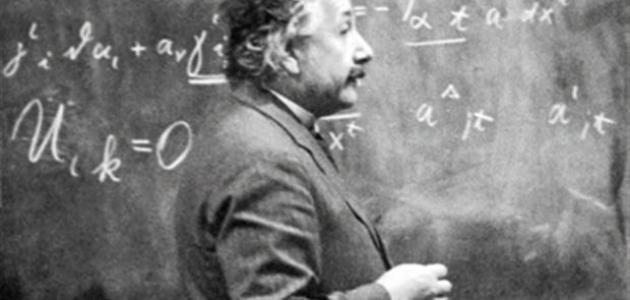
physics
Physics or the science of nature, sometimes referred to as "physics", is a science that studies everything related to matter, energy and movement. In addition, it attempts to understand the forces, natural phenomena, and the movement that affect their functioning, Only the previous processes, but addition to this predicts the march of all natural processes within models gradually approaching reality. Physics focuses on measurement accuracy by devising new methods of measurement to increase the accuracy of output, because these methods are the basis for a proper interpretation of natural phenomena, and provide the methods to be used in all other biosciences and natural sciences. History of ancient Egyptian physics The oldest inscribed documents found in the field of astronomy were found on the covers of the coffins, which are called "Qatari calendars." These inscriptions date back to the period of the Middle Kingdom, in addition to pictures of the stars' Modern Egypt, which followed the Middle Kingdom, has been observing the sky since ancient times, and names were given to the stars by distinguishing their formations, and they were dedicated to the gods. The beginning of astronomy was the attempt to predict a number of phenomena such as the moon and the lunar calendar, as in the case of the Babylonians, with a difference with the Egyptians, who consider the start of the calendar to come when the moon decreases in the morning, while the Babylonians consider the beginning of the calendar when the crescent appeared in the early evening. Ancient Egyptian astronomy is concerned with the time. One of their most important achievements is the Egyptian calendar, which is divided into three hundred and sixty-five days, twelve months. Each month consists of thirty days, and there are five days to commemorate the end of the year. It is about two thousand and five hundred years BC, which divides the period between dusk and dawn to twelve hours a night, followed by twenty-four hours a day. The Babylonians focused their precise attention on all physical phenomena, particularly the first appearance of the crescent through the use of the Zodiac as a reference. In the fourth century BC they developed a complex mathematical method that had a great effect in enabling them to predict its first appearance. The Babylonians found a link between the solar and lunar calendars consisting of a cycle of nineteen years, consisting of seven years of thirteen months of lunar time, and 12 years of twelve months. It was called the "metonymic cycle" in relation to its proposal of the four hundred and thirty-two BC, and this session is of great importance as it is an important way to identify Easter in the Christian calendar. The Babylonian astronomer divided the Egyptian day into sixty minutes per hour. The astronomical clock was replaced by a clock that varies according to the day and night, the different seasons, the equal time in the divisions. The Babylonian ways were of great importance in the astronomy of later Greek civilization. The Greek was used to measure the Sumerian sixteenth century instruments used to measure the time, lengths and angles, and to adopt the water clock to measure the time and develop the Babylonian calendar and to use the idea of scales created by the ancient Egyptians. All these things led to the development of the Greek Science School which had many important contributions in physics and other sciences, Among their achievements were the emergence of theories on the cosmic structure, whose emergence resulted in the emergence of two trends: the continuing formation adopted by the Zeno School in the period between the 4th and 3rd centuries BC and Posidonius First century BC. His appearance was due to the obvious diversity of the universe and its natural diversity. The atomic physicists, led by Lucipus and Democritius, emphasized that nature consists of static atoms moving in an empty space.
Interesting post
Thank you for your great comments
wow i can learn more from you !!
Thank you
now i came to know about physics and its history
i was not told must of this in the university. thanks
A proud scientist... thnks for de brief history
This post has received a 10.11 % upvote from @aksdwi thanks to: @abed894.
1.82% @pushup from @abed894
Cool